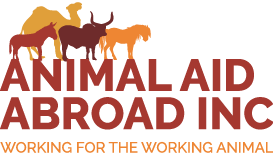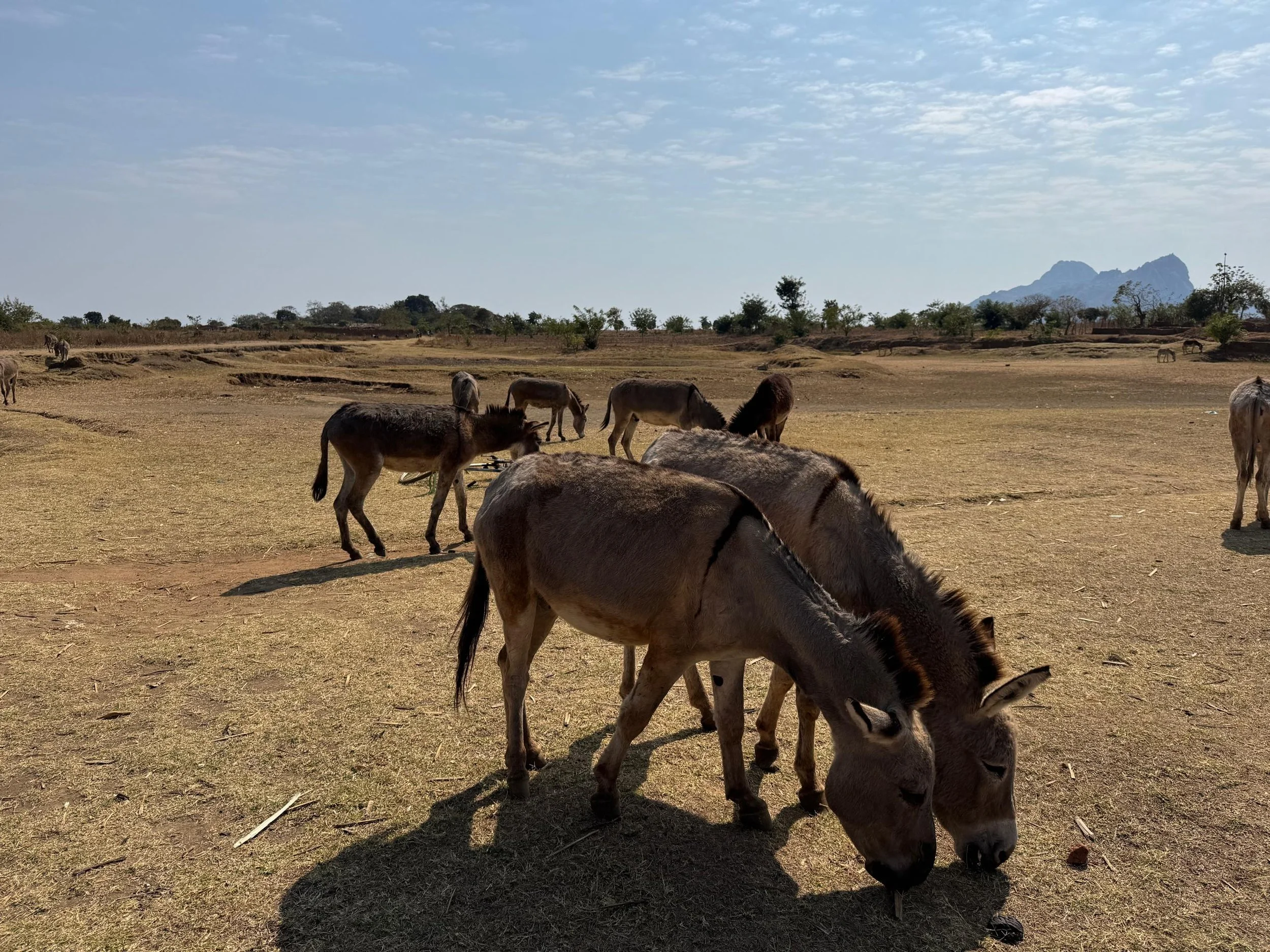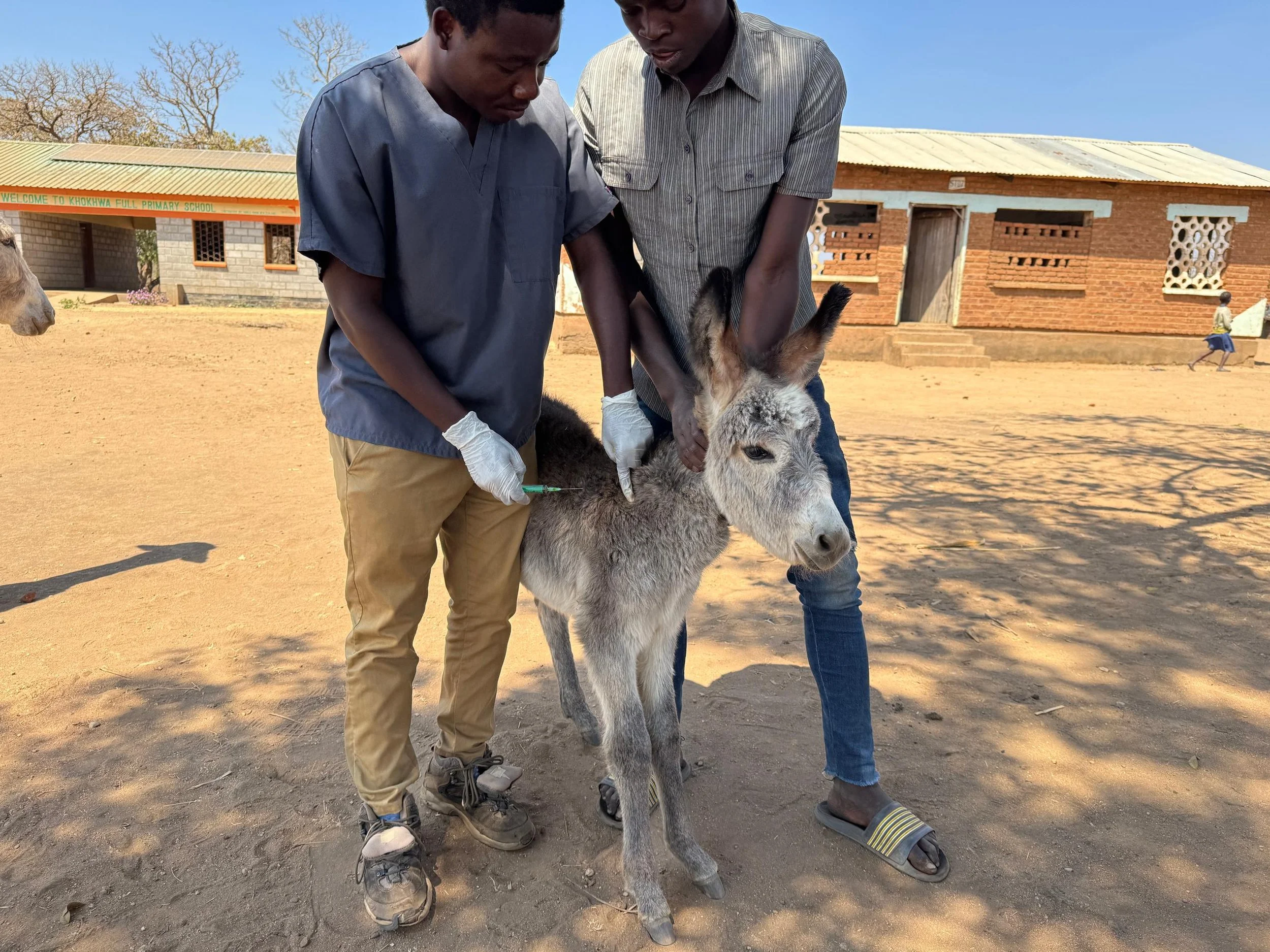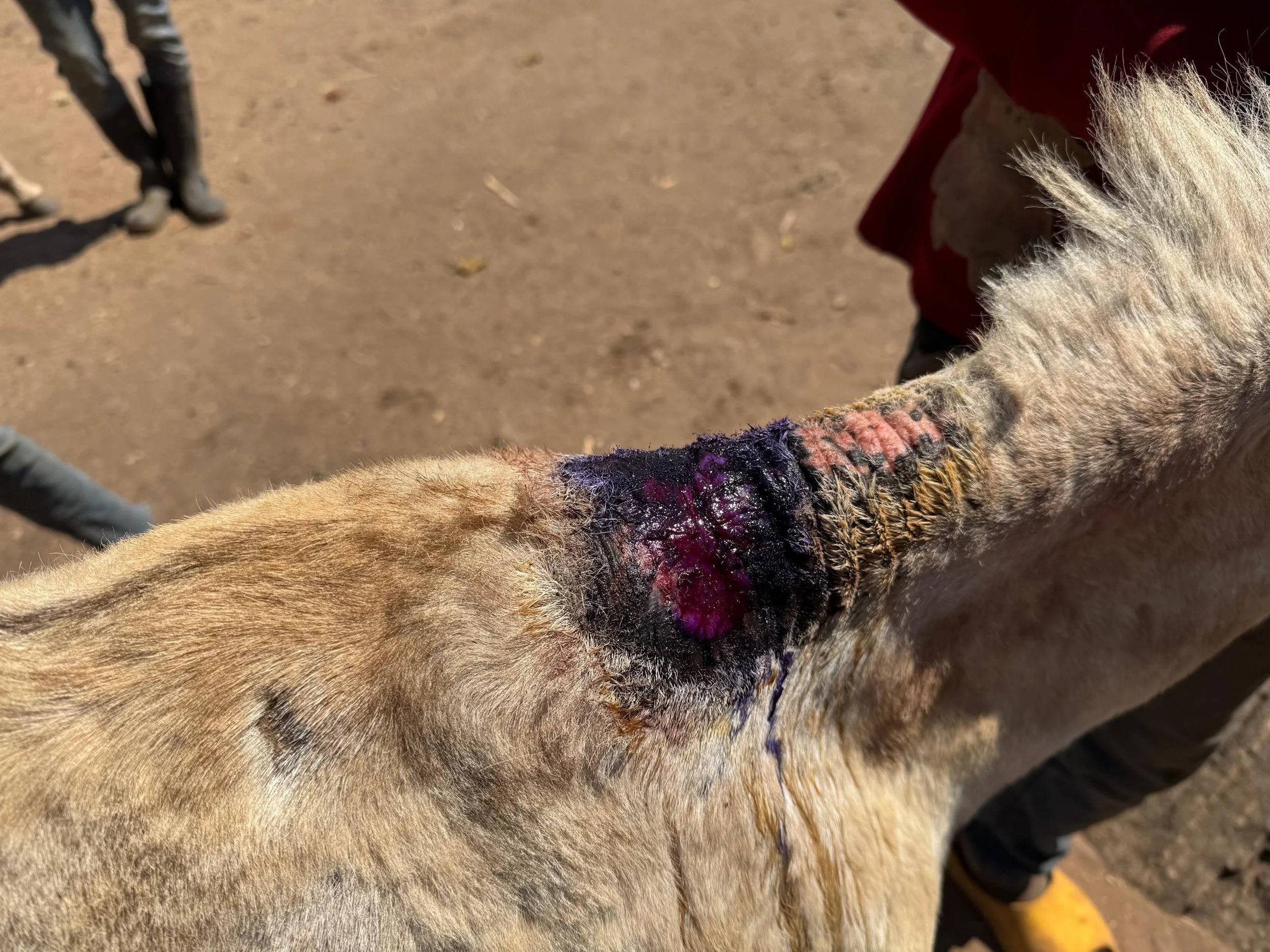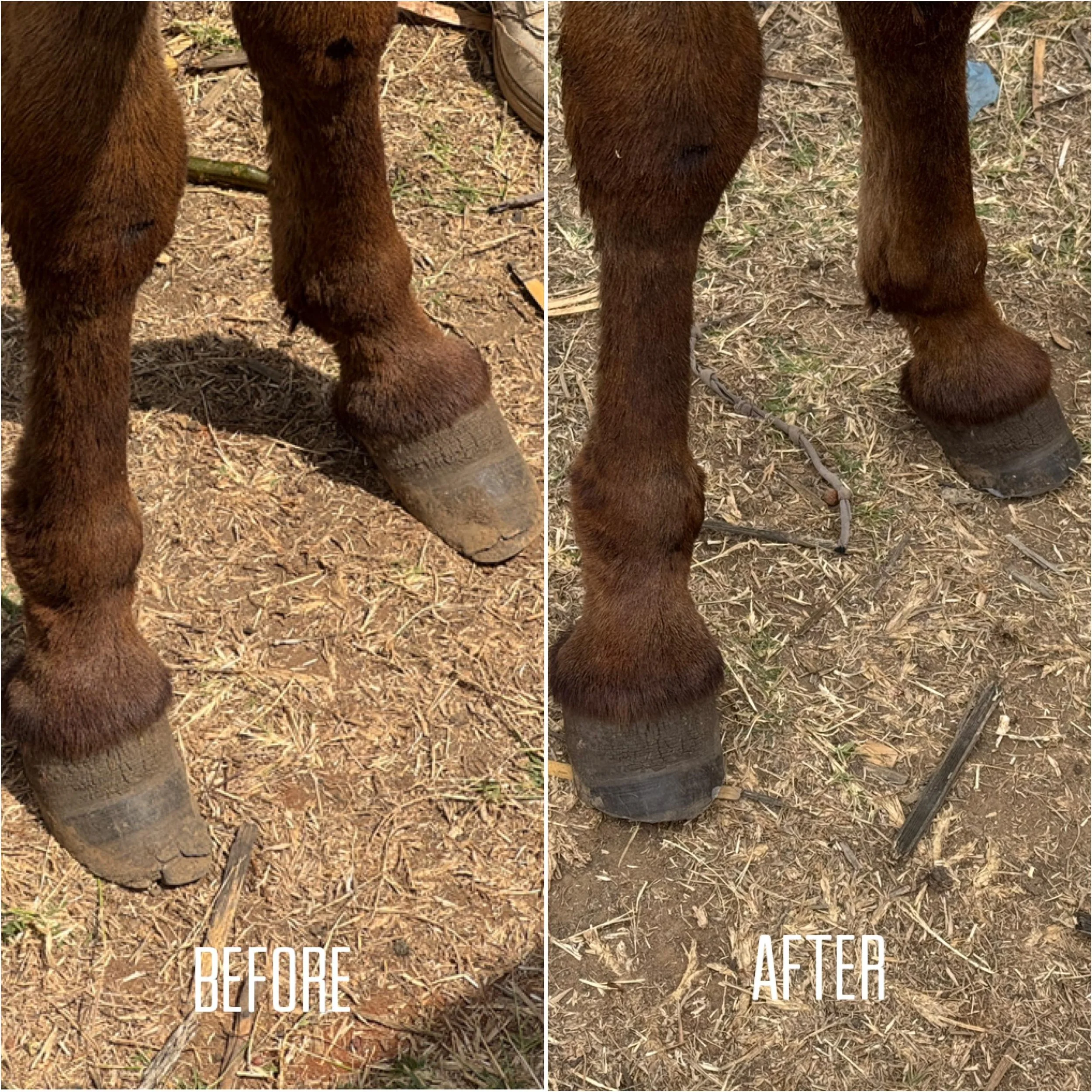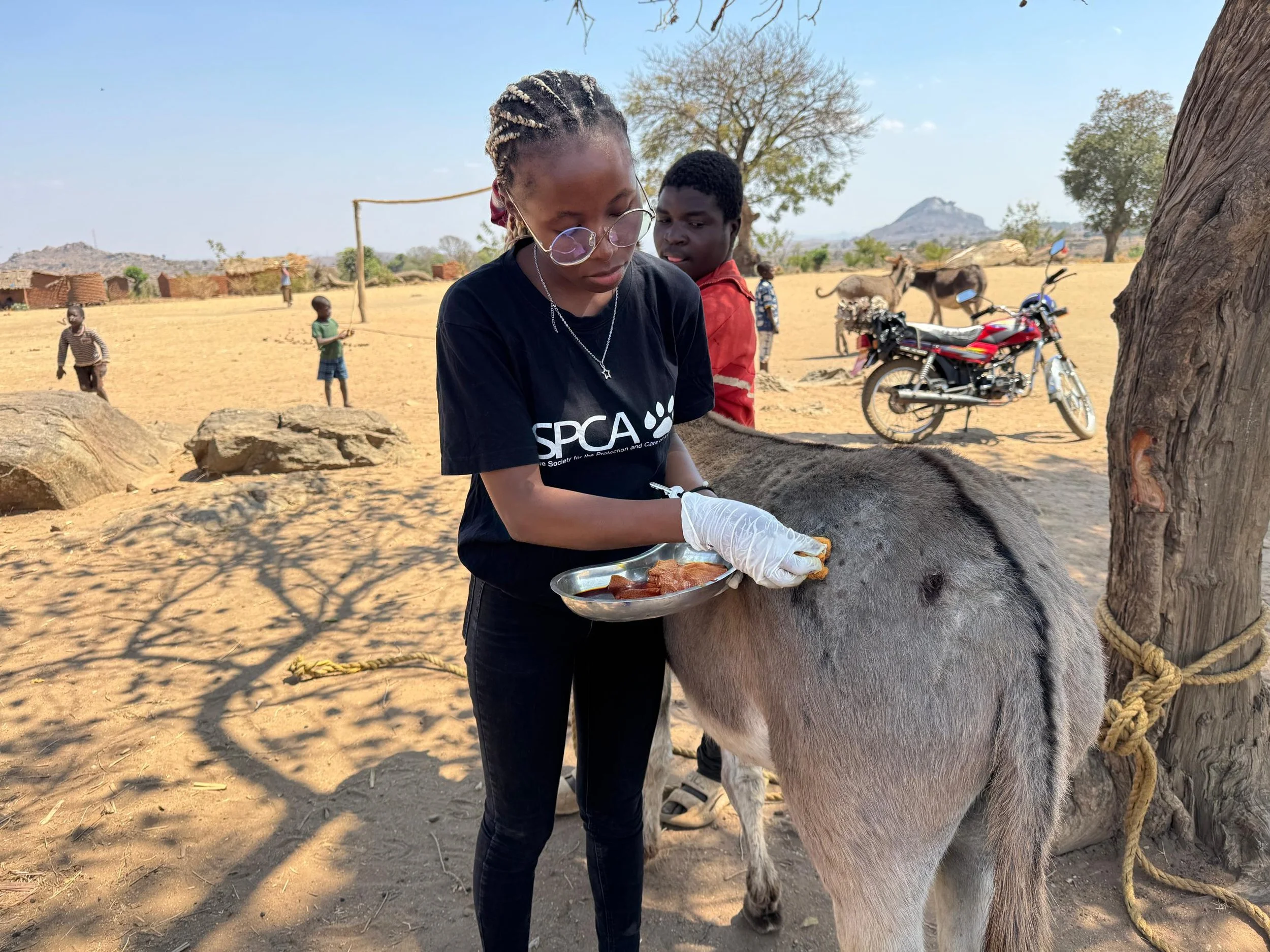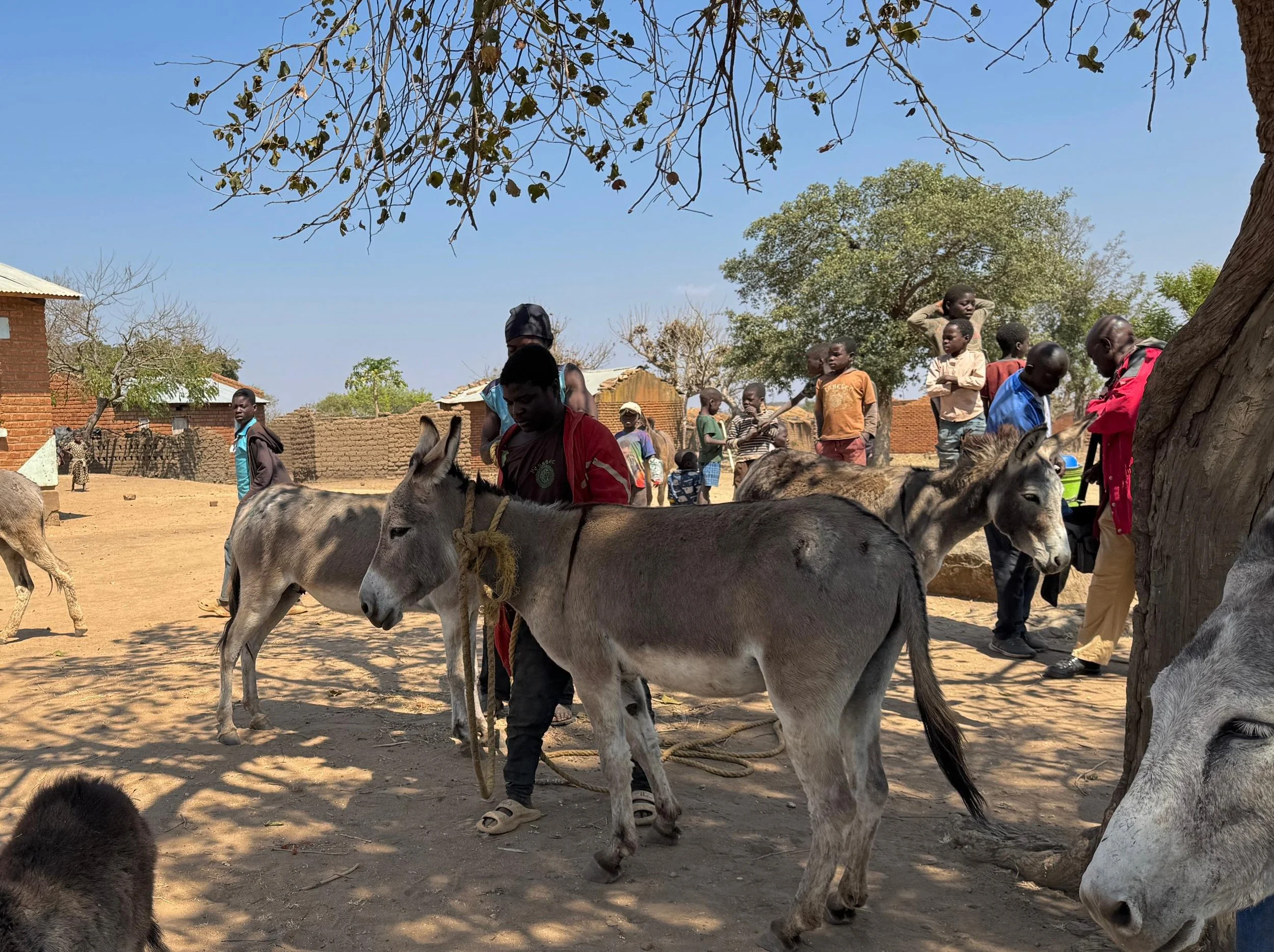Education Paves the Way for Improving the Lives of Working Donkeys
Thanks to your wonderful support, the Lilongwe Society for the Protection and Care of Animals (LSPCA) have made great strides towards improving the welfare of working donkeys through veterinary care and community education.
You can read their full August report below:
Introduction
With support from Animal Aid Abroad (AAA), the LSPCA team conducted two mobile clinics in August under the Donkey Welfare Project, reaching Kalimbira (Dzenza) and Phatisa (Mponela). A total of 236 donkeys were treated or physically assessed: 120 donkeys in Kalimbira and 116 donkeys in Phatisa.
The clinics provided veterinary care, including treatment of wounds, looking for signs of overwork, and general health assessments. The team also provided education for owners on hoof care, humane handling, and safer restraint methods.
In Kalimbira, most donkeys were in excellent condition, reflecting strong human-animal bonds and consistent care. However, in Phatisa, a few animals showed communication wounds or mild signs of overwork, such as a depressed posture, reluctance to move, and visible muscle strain, highlighting areas where ongoing education is needed.
The clinics emphasised practical solutions, such as safer harness use and supervision by Assistant Veterinary Officers (AVOs), who actively assisted with treatments, monitored owner practices, and reinforced education during and after the clinics.
Donkeys grazing and waiting for assessment during the mobile veterinary clinics.
Giving a young foal essential vitamins.
Veterinary Interventions
On 15th August, the first mobile clinic was held in Kalimbira (Dzenza). A total of 120 donkeys were treated or physically assessed. Most donkeys were in very good condition, reflecting the owners’ consistent care and strong human-animal bonds.
Some welfare gaps were noted, particularly in terms of hoof care and the use of ropes for restraint and control.
Farmers commonly use ropes to pull donkeys, maintain control, and restrain them. Unfortunately, these are often inappropriate and end up causing abrasions, neck bruises, and worsening existing wounds.
The LSPCA team spent time educating owners on the risks of this approach, explaining that excessive pressure or rough handling with these ropes can lead to long-term pain, discomfort, and reduced working ability for their donkeys. We demonstrated safer alternatives, such as using well-padded harnesses, correctly fitted straps, and gentle handling techniques, showing owners how small changes can prevent injury and improve donkey welfare.
During this clinic, a donkey called Ukali was presented for treatment. Ukali appeared depressed and reluctant to move, with a severe neck wound caused by a combination of a worn-out yoke and overwork, which was further aggravated by a rope used for restraint.
The team treated the wound and explained to the owner how continued use of thin ropes could worsen Ukali’s condition. Ukali’s example helped farmers understand the real-life consequences of improper restraint and the importance of careful handling.
Ukali receiving wound cleaning and treatment.
Owner education during the clinic.
After treating four donkeys with overgrown hooves, the team provided education on proper hoof trimming, explaining how it relieves discomfort, prevents lameness, and improves working ability. They demonstrated correct trimming on-site, stressing that owners should not attempt this themselves without guidance from a skilled professional.
AVOs in the area support the LSPCA team by supervising treatments, reinforcing lessons with owners, and providing ongoing guidance in between visits.
Importantly, owners also shared how they build trust with their donkeys through gentle handling and rewards, showing that strong human-animal relationships keep donkeys healthy and easier to manage.
Donkey with cracked and overgrown hooves.
Before and after hoof trimming, showing how proper care relieves discomfort and prevents lameness in working donkeys.
On 27th August, the second clinic was held in Phatisa (Mponela). A total of 116 donkeys were brought to the clinic with 90 treated and 26 assessed. Most were in good condition, but a few showed communication wounds or mild signs of overwork, including a depressed posture, reluctance to move, visible muscle strain and stiffness, indicating that they had been performing strenuous work without adequate rest.
The team provided targeted veterinary care where needed and educated owners on the risks of overworking donkeys, explaining how inadequate rest, prolonged pulling, or carrying heavy loads can lead to bruises, stiffness, and long-term health problems.
Practical solutions include giving donkeys regular breaks, rotating work, and using safer harnesses to prevent neck and back injuries. The turnout reflected both the community’s reliance on donkeys and their willingness to engage in improving welfare practices.
An owner receives guidance from the LSPCA vet on reducing overwork and improving welfare, with the donkey’s poor body score highlighted as a concern.
Overall, the two clinics reached 236 donkeys, combining treatment and assessment with practical education focused on hoof care, humane handling, and safer restraint methods. Ukali’s case, along with others, helped illustrate these important lessons to the community in a clear and tangible way.
Harness Repairs and Community Engagement
Following observations during the August clinics, the team noted that many donkeys were affected by improper restraint and the use of inappropriate ropes, which can cause neck bruises, abrasions, and worsen existing injuries.
To address this, owners received education on proper harness use and safer restraint methods, including guidance on adjusting or replacing ropes to prevent discomfort and injury.
Looking ahead, the project is planning hands-on harness and cart repairs in September. This timing allows for sourcing quality materials that respond to the specific needs of each repair case, ensuring that the interventions are durable and effective. These repairs will complement veterinary care, reduce injuries, and make equipment safer for donkeys while being more reliable for their owners.
An owner handling his donkey using an inappropriate rope, illustrating how improper restraint can cause neck bruises, abrasions, and discomfort.
Challenges and Way Forward
In August, the main challenges observed included continued use of inappropriate ropes for restraint and control. Overworking of donkeys, combined with worn-out yokes and harnesses, also contributed to discomfort and reduced working ability.
Gaps in hoof care were noted, as some donkeys required trimming to prevent lameness and pain. Although most donkeys were in good condition, cases like Ukali highlighted the real-life consequences of improper handling and using inappropriate equipment.
To address these challenges:
The team provided education on hoof care, humane handling, and safer restraint methods, demonstrating correct techniques on-site. Owners were reminded not to trim hooves themselves without guidance from a skilled professional.
Guidance was given on maintaining and adjusting harnesses, reducing risks of neck bruises and other injuries.
Local AVOs are supporting owners with ongoing supervision and advice to reinforce proper care between visits.
A hands-on harness and cart repairs workshop in September will address worn out equipment, using quality materials tailored to the specific needs of each case.
With your ongoing support and generous donations, we can continue to fund these essential programs being delivered by the LSPCA. Thank you for being a vital part of creating change for working donkeys in Lilongwe, and for ensuring these gentle animals are treated with greater kindness and respect.
